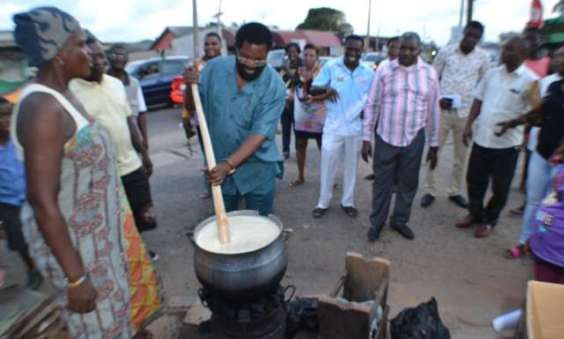How to win elections in Ghana according to Ghanaian politicians
)
However, many Ghanaian politicians have mastered certain tactics to reconnect with voters and secure their support just in time for elections. Here are some of the ways they successfully win back the hearts of the electorate:
1. Suddenly completing abandoned projects
One common strategy is to revive and complete projects that were previously left abandoned. For example, a road that was half-constructed and then neglected for years might suddenly see a flurry of activity in the months leading up to an election.
The completion of these projects creates a sense of accomplishment and progress, convincing voters that their concerns are being addressed.

These last-minute efforts can leave a positive impression, making it seem like the politician is committed to development, even if the timing suggests otherwise.
2. Engaging in domestic chores with the electorate
Another interesting tactic used by Ghanaian politicians is to partake in everyday domestic chores, such as pounding fufu, preparing banku, or even washing clothes.
This hands-on approach makes politicians appear relatable and down-to-earth, showing that they are not above the daily struggles of ordinary citizens.
While it might seem like a publicity stunt, these acts often resonate with voters, creating an image of a leader who understands and shares their lifestyle.

3. Spending quality time with the electorate
In the run-up to elections, politicians make a point to spend more time with voters in informal settings. You might find them at bus stations, pubs, local markets, or community centres, mingling with citizens and catching up as though they were long-time friends.
This strategy is designed to humanise the politicians, making them more approachable and likeable.
By engaging directly with the electorate, they give the impression that they genuinely care about the people’s lives and issues. However, this often fades once the elections are over, with such interactions becoming rare until the next election cycle.
These tactics show that Ghanaian politicians are adept at using short-term, highly visible gestures to win back support.
Completing abandoned projects, engaging in domestic chores, and spending time in the community are all strategies that create a sense of familiarity and reliability.
While these methods may not address the deeper issues of accountability and long-term development, they are effective in creating a favourable impression when it matters most—during election season.
For voters, it's essential to recognise these tactics and look beyond the surface to evaluate politicians based on their long-term actions and policies, rather than just election-year performances.


)
)
)
,fit(112:112))
,fit(112:112))
,fit(112:112))